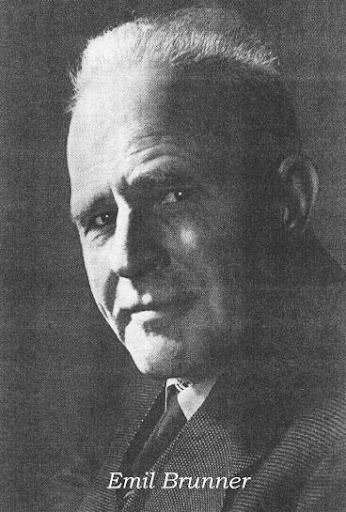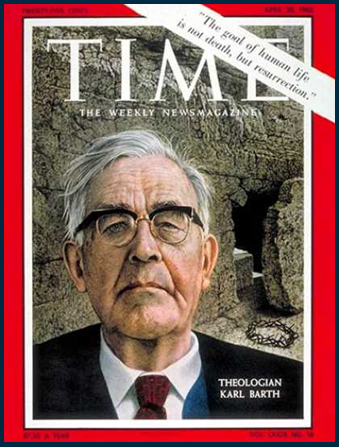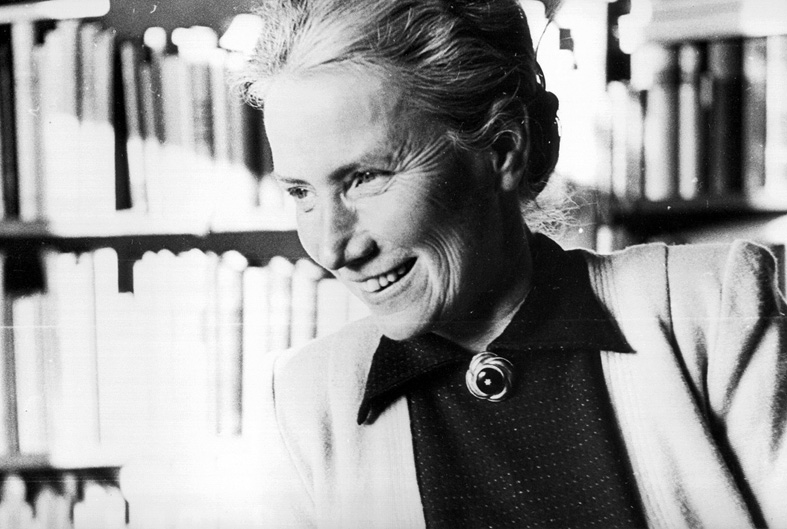Brunner’s Christology
 Brunner presents the heart of Christian faith—the person and work of Jesus Christ—across five chapters entitled Jesus the Christ, The Son of Man, The Son of God, The King, and The Mediator. It is immediately apparent that this is a titular Christology, using New Testament titles attributed to Jesus Christ as the entry point for the discussion.
Brunner presents the heart of Christian faith—the person and work of Jesus Christ—across five chapters entitled Jesus the Christ, The Son of Man, The Son of God, The King, and The Mediator. It is immediately apparent that this is a titular Christology, using New Testament titles attributed to Jesus Christ as the entry point for the discussion.
Brunner begins by noting that Jesus—the remarkable human person who may win our admiration—is and was also the Christ; that is, the one in whom God himself has spoken and acted and come to us. He is the revelation both of God and of ourselves.
Jesus is a man, but in that human life something happened that never happened before. In Him God’s will, God’s world plan, God Himself, whom we do not apprehend, but can merely surmise, became manifest (58-59).
But Jesus is known as the Christ only by those that believe, who, confronted by this person, see more than his humanity, who perceive in him the divine presence itself, and therefore whose hearts are opened, who believe, and receive him as the Christ. Historical knowledge of Jesus is not sufficient. Rather, spiritual apprehension is necessary, as well as personal decision and response. The existential moment of encounter is critical, and, if it occurs, is a gift of grace.
Jesus the Christ is also the Son of Man, the true human being, humanity in the image of God, humanity as God intended it. He is no abstract ideal but the reality itself. What is true of Jesus is not true of any of the rest of humankind—in us the divine image has been lost, washed out, and faded. But the promise and message of the Son of Man is that humanity can and shall be restored to true humanity, so that we shall be as he is.
Who God is, and who we are, is revealed to us in Jesus Christ by God Himself. God had to come to us as man to show us ourselves, our own creation, and our own sin. … “Behold the man,” the image of God. That is Jesus, man as God wanted him to be when He created him, the man who lives wholly in the things of his Father. … Jesus Christ is come not only to show us the true man, but to tell us God’s purpose to remake us in our lost image. That you shall become (59, 61-62, original emphasis).
The ‘Son of God’ title reveals who Jesus Christ is: not merely a man or one who speaks for God as a prophet, but God himself, the Word that God speaks directly to us. Jesus is the Word of God, the revelation of God, the wisdom, will, and way of God. In him, God speaks to us and comes to us. In Jesus Christ we come to know who God is and what he is like and what he wills. Christian faith is nothing less than this: belief in the true divinity of Jesus Christ. Brunner explains that Jesus is more than merely a prophet: he not only has the Word but is the Word. He not only proclaims salvation but gives it.
To know Jesus is to know him as Christ, Son of God, and King. We have Christ truly, only as Lord and King. Faith in Jesus is expressed as obedience to his Lordship. One must forsake their own desires for independence in order to live under his reign. Brunner sets forth a dialectical understanding of human experience in relation to Christ the King:
Liberty is not the first, but the second word. The first word is obedience. God created man in His own image—which means that we are created for liberty. But we have overlooked the first word: God created man. Therefore God is master. As long as men keep that firmly in mind, that God is Lord, they may and should strive for liberty; but when they have forgotten the primary truth their liberty becomes licence and arrogance (66-67, original emphasis).
God’s lordship is not tyrannical; he wills that our obedience be freely rendered, grounded in the fear of the Lord, a responsive self-giving in reverence and love to his initiating love. Such obedience is not the forfeiture of our freedom but its realisation.
We want to be our own Lords. … Jesus Christ is come but we will not have Him for our king, we want to remain ‘free.’ But that simply means that we want to remain slaves of evil, for if Christ does not reign in us, someone else does. … Faith means to accept Jesus as King and obey Him. That is the oldest creed of the Christian church—Jesus, the Lord! (69).
The human problem is our guilt, something, Brunner insists, that we know, deeply within ourselves. Our own conscience, God’s instrument to reveal our guilt-worthiness, testifies against us.
Secretly everyone feels this. There is no one who does not fear God—even those who deny God and laugh at faith in God. Beneath the surface, deep down in the soul, dwells the fear of God, the fear of being lost (71).
God treats humanity’s sinfulness with utmost seriousness. God wants us to know ourselves truly as those who in themselves are and remain guilty sinners, and yet who are also reconciled in Jesus Christ. Our guilt is objective, registered against us in heaven. But at the cross Jesus has taken it upon himself. He reveals both: the misery of the human condition and the reconciling love of God. Here, at the cross, he is Immanuel, God with us.
He will not destroy the manuscript that testifies against us, but He will destroy its power by a higher power. He has ‘nailed it to the cross’ that we might see both our guilt and His even greater mercy, the earnestness of His holy will and the even greater earnestness of His fatherly love. That is the message of Jesus Christ, the Mediator (72).


